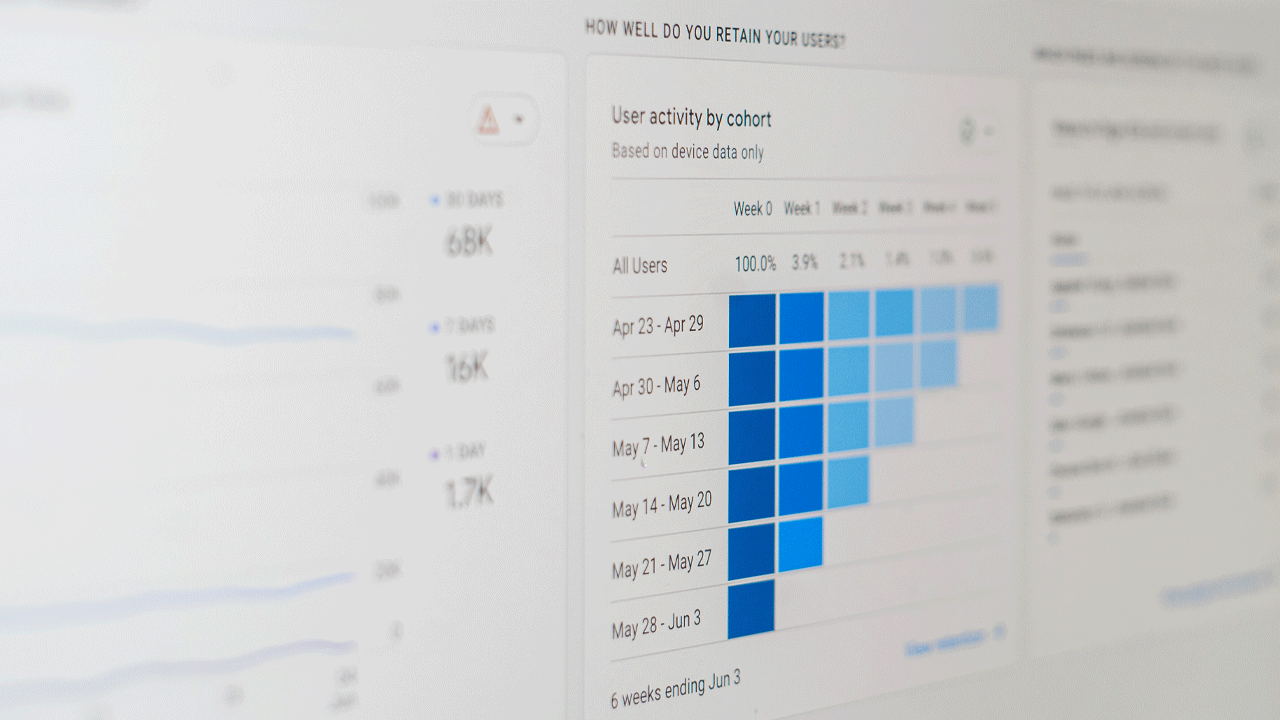In the digital age, the visibility of your website on search engines can make or break your business. The art and science of enhancing your website’s visibility is known as Search Engine Optimization (SEO), a critical component of any successful online marketing strategy. This comprehensive guide will delve into the intricacies of SEO, from the significance of its role in your website’s success to the nitty-gritty of keyword research for improved rankings.
We will explore how to supercharge your website’s speed and performance, a key factor often overlooked in SEO strategies. Furthermore, we will shed light on the importance of tailoring your website’s content to be search engine friendly, and the power of backlinks in propelling your website’s SEO. Finally, we will discuss the importance of continuously monitoring and tweaking your SEO strategy to ensure sustained success.
This guide is designed to pique your curiosity, keep you engaged, and most importantly, equip you with the knowledge and tools to optimize your website for better search engine rankings. So, buckle up and prepare to dive into the fascinating world of SEO!
1. Understanding the Importance of SEO for Your Website
When it comes to enhancing your online presence, SEO (Search Engine Optimization) plays a pivotal role. It’s not just about attracting more traffic to your website, but about drawing the right kind of traffic. The pros of implementing SEO are numerous. It helps in improving your website’s visibility, increasing your brand’s credibility, and providing a better user experience. Moreover, SEO is cost-effective compared to other forms of online marketing such as PPC advertising or purchasing leads for an email marketing program. However, there are also cons to consider. SEO requires a significant amount of time and patience, as results are not immediate. It also necessitates continuous effort and adaptation to the ever-changing search engine algorithms. Despite these challenges, the benefits of SEO far outweigh the drawbacks, making it an essential component of any successful digital marketing strategy.
2. Implementing Keyword Research for Higher Rankings
Understanding the importance of keyword research is crucial for improving your website’s search engine rankings. The process involves identifying popular words and phrases people enter into search engines while looking for products or services similar to yours. By strategically incorporating these keywords into your website’s content, you can significantly enhance your visibility on search engine results pages (SERPs). Here’s how you can effectively implement keyword research for higher rankings:
- Identify Your Niche: Start by understanding your business niche and the kind of audience you want to target. This will help you determine the most relevant keywords.
- Use Keyword Research Tools: Utilize tools like Google Keyword Planner, SEMrush, or Moz Keyword Explorer to find popular and relevant keywords in your niche.
- Analyze Your Competitors: Look at the keywords your competitors are ranking for. This can provide valuable insights into the keywords you should be targeting.
- Long-Tail Keywords: Don’t ignore long-tail keywords. These are more specific and less competitive, making it easier for your website to rank higher.
- Keyword Placement: Once you have your keywords, strategically place them in your website content, meta descriptions, URLs, and title tags.
3. Enhancing Website Speed and Performance for SEO
One of the most crucial aspects to consider in SEO optimization is your website’s speed and performance. Search engines like Google prioritize websites that load quickly, providing a better user experience. A slow-loading website can increase your bounce rate, negatively affecting your search engine rankings. Therefore, it’s essential to optimize your website’s speed by compressing images, enabling browser caching, and minimizing HTTP requests. Using a Content Delivery Network (CDN) can also significantly improve your website’s loading speed by distributing the load of delivering content. Additionally, ensure your website is mobile-friendly, as Google uses mobile-first indexing. Regularly monitor your website’s performance using tools like Google’s PageSpeed Insights to identify any potential issues that could be slowing down your site. Remember, a faster website not only improves user experience but also boosts your SEO ranking.
Tip: Regularly update your website’s plugins and themes, as outdated versions can slow down your site and make it vulnerable to security threats.
4. Optimizing Your Website Content for Search Engines
Creating high-quality, relevant content is a critical aspect of website optimization. Search engines prioritize websites that offer valuable content to their users. Therefore, it’s essential to understand your audience’s needs and provide content that meets those needs. This can be achieved by conducting keyword research to identify what your target audience is searching for and incorporating those keywords into your content. However, avoid keyword stuffing as it can lead to penalties from search engines.
Another crucial factor in content optimization is the use of meta tags. Meta tags provide search engines with information about your webpage. This includes the title tag, which appears in the search engine results page (SERP), and the meta description, which provides a brief summary of your page. These tags should be unique for each page and include your target keywords.
Let’s consider a comparison between two websites, A and B. Website A regularly updates its content, uses relevant keywords, and has unique meta tags for each page. On the other hand, Website B has outdated content, does not use keywords effectively, and has duplicate meta tags. In this scenario, Website A is likely to rank higher in search engine results due to its optimized content.
| Website | Content Updates | Keyword Usage | Meta Tags | Search Engine Ranking |
|---|---|---|---|---|
| Website A | Regular updates | Effective usage | Unique for each page | High |
| Website B | Outdated content | Poor usage | Duplicate tags | Low |
5. Utilizing Backlinks to Boost Your Website’s SEO
Backlinks, often considered as the backbone of SEO, play a crucial role in enhancing your website’s visibility on search engines. High-quality backlinks from reputable websites not only increase your site’s credibility but also improve its ranking on search engine results pages (SERPs). However, it’s essential to note that not all backlinks are beneficial. Low-quality or spammy backlinks can harm your SEO efforts and even lead to penalties from search engines.
On the positive side, backlinks can significantly improve your website’s SEO by driving referral traffic, increasing brand visibility, and building authority. Referral traffic is particularly beneficial as it brings in a targeted audience that is more likely to engage with your content. On the downside, acquiring high-quality backlinks can be challenging and time-consuming. It requires creating valuable content, building relationships with other website owners, and constantly monitoring your backlink profile to avoid any potential issues.
Despite the challenges, the benefits of using backlinks for SEO are undeniable. However, it’s crucial to focus on the quality of the backlinks rather than the quantity. A few high-quality backlinks from authoritative websites can have a more significant impact on your SEO than hundreds of low-quality ones. Therefore, it’s advisable to invest time and resources in building a strong backlink profile that can boost your website’s SEO and help you achieve your digital marketing goals.
6. Monitoring and Adjusting Your SEO Strategy for Continued Success
Continual success in SEO is not a one-time achievement, but a result of consistent monitoring and adjustments. Regular tracking of your website’s performance using tools like Google Analytics can provide valuable insights into what’s working and what’s not. This data can help you identify areas of improvement and make necessary changes to your SEO strategy. Additionally, search engine algorithms are constantly evolving, making it crucial to stay updated with the latest SEO trends and practices. Adapting your strategy to these changes can significantly improve your website’s search engine rankings. In conclusion, a successful SEO strategy is a dynamic one that evolves with time and trends. It’s about making informed decisions based on data and staying flexible to adapt to new changes.
Frequently Asked Questions
What is the role of keywords in SEO?
Keywords play a crucial role in SEO as they help search engines understand what your website content is about. They are the search terms that people type into search engines. By optimizing your website with relevant keywords, you can attract the right audience and improve your search engine rankings.
How does website speed affect SEO?
Website speed is a significant factor in SEO. If your website takes too long to load, visitors are likely to leave, increasing your bounce rate. Search engines like Google consider website speed as a ranking factor, so enhancing your website’s speed and performance can improve your SEO.
Why is content optimization important for SEO?
Content optimization is essential for SEO because it makes your website more visible to search engines. By using relevant keywords, meta tags, and high-quality content, you can make your website more attractive to search engines, leading to higher rankings.
What are backlinks and how do they boost SEO?
Backlinks are links from other websites to your website. They are important for SEO because they signal to search engines that your content is valuable and trustworthy. The more high-quality backlinks you have, the higher your website can rank in search engine results.
How can I monitor and adjust my SEO strategy for better results?
Monitoring and adjusting your SEO strategy involves tracking your website’s performance using tools like Google Analytics, identifying areas of improvement, and making necessary changes. This could include updating your keywords, improving your content, or increasing your backlinks. Regular monitoring and adjusting can help you achieve continued success in your SEO efforts.




